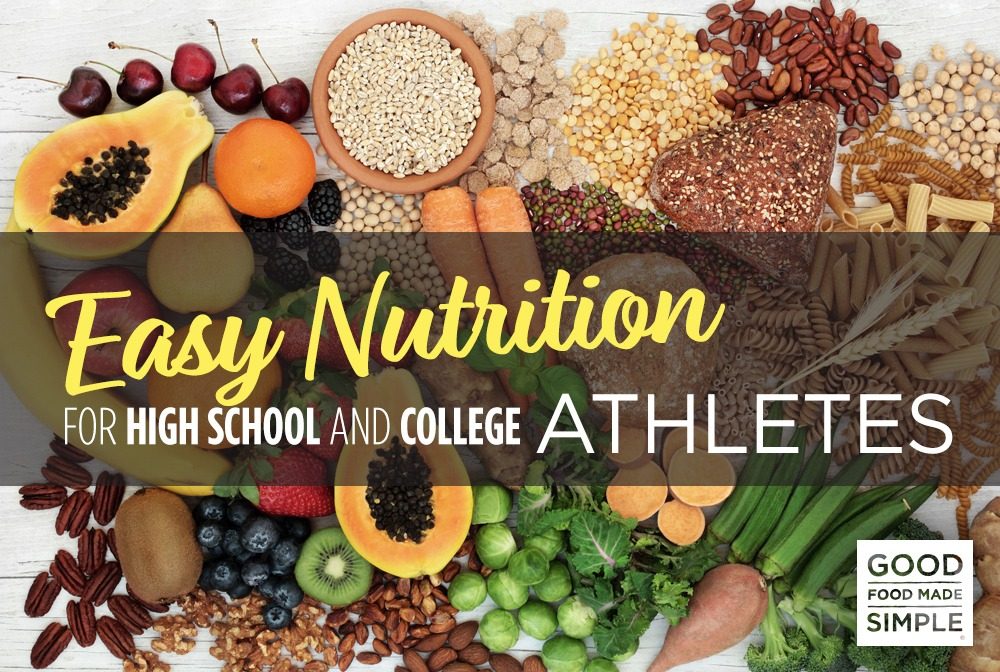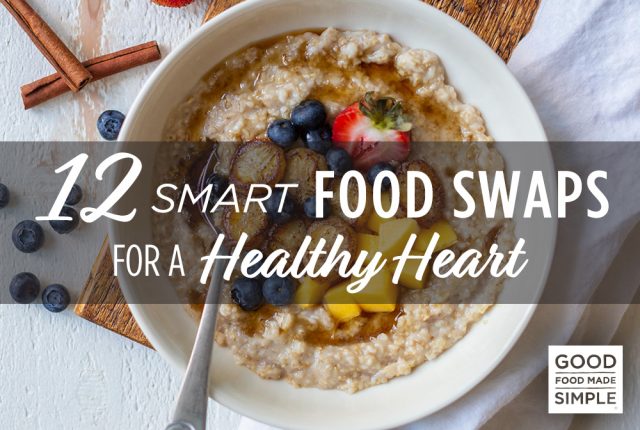
25 Active Date Ideas
While going on dates can certainly be fun, a typical night out with a romantic partner often ends up being focused on eating ...
read more
As summer comes close, every athlete knows that tryout season is near. After an enjoyable break, reality hits that you need to get back into peak physical fitness for your sport. As you start to prep your workouts and get yourself mentally prepared for the season, don’t forget about nutrition! As an athlete you feel like you can get away with eating whatever and however much you like because you burn it all off. But diet and nutrition has a much bigger impact on your performance on the field and off than you think. The good news is that nutrition for high school and college athletes is easier than you think.
With almost daily practices and games, you’re burning a lot of calories. You need to fuel your body to last all game long while giving it the nutrition it needs to build muscle. Male and female athletes can consume upwards of 3,000 calories per day to fulfill their caloric needs, especially if they’re still growing. It can be challenging to know how to spend all of those calories to get the quality fuel you need. Sometimes you’re running late for classes and need a protein packed on-the-go breakfast. Other times you come home from practice and don’t have the energy to put together a meal to replenish your carbohydrates.
Keto and low-carb diets have no place in the athletic world where carbs are king. You need carbs to give you the energy to achieve peak endurance and speed. Carbohydrates serve as the primary source of energy for all of your practices, games, and workouts. Your body changes carbs into glucose (AKA sugar) and stores it in your muscles to use for energy later on. An athlete’s diet should be 50-70% carbohydrates from whole grains, fruits, and vegetables.
Whole grains are grains that are unrefined and therefore still have all of their nutrients. Choosing whole grain breads and pastas over refined grains will give you the boost in energy you need while boosting your protein intake for the day. One great way to get some whole grain carbohydrates into your day is by starting your mornings with an easy steel-cut oatmeal parfait with fruit.
Your vegetable intake should consist of a combination of starchy and non-starchy veggies. Starchy vegetables include potatoes, corn, peas, and beans. Non-starchy vegetables include broccoli, spinach, cauliflower, and zucchini. You should aim for a total intake of 5 servings of fruits and vegetables for the day. The good news is that carbo-loading on pastas and veggies is easy and probably your favorite when it comes to nutrition for high school and college athletes.
The beginning of the fall season can still be extremely hot in most parts of the country. When your body is not properly hydrated you risk poor performance, an injury, and in worse cases, your life. Hydration should be an all-day focus, not just while you’re at practice or during a game. Generally, athletes should divide their weight in half and drink that amount ounces of water every day.
You should begin practice or a game well-hydrated and continue to maintain hydration during exercise. All of that sweat that accumulates during playing can lead to 2-3% decrease in body weight from water. The general rule of thumb to follow is that if you’re thirsty, you are already dehydrated.
For peak hydration and performance according to the NCAA, drink one 16 oz water bottle 2-3 hours before your exercise and one 8 oz glass of water 15 minutes before. During your practice or game you should be drinking 2-3 large gulps of water every 15-20 minutes. Sports drinks are a great hydration option as they replenish carbohydrates and electrolytes for athletes exercising for more than 60 minutes. Beware of added sugars though!
High-quality proteins are a must when it comes to maintaining and building muscle for athletes. These include lean meats such as chicken, fish, turkey, eggs, cheese, yogurt, tofu, and edamame. An athlete requires upwards of 1.7 g of protein per kilogram of body weight. To get in your daily amount of protein, try to get protein in with every meal.
Getting protein in with every meal can be difficult if you’re busy between classes, studying, homework, practices, and games. Especially when it comes to a protein packed breakfast. Whether you need something quick before you catch the bus or only have access to a microwave in the dorms, you need something that is easy and packs the protein. Try keeping a breakfast burrito in your freezer for mornings like this.
Be cautious of consuming too much protein as it can cause damage to your kidneys and can lead to dehydration. Some protein powders and bars can be loaded with sugar and artificial additives to increase the amount of protein. The best way to increase your protein intake is a whole foods approach.
The desire to snack all day is so real when your body is craving all those calories. We all know that your school’s vending machine doesn’t have the best options either. So instead of relying on an unhealthy snack that is probably filled with sugars and artificial flavors, try packing a snack.
Pack options like nuts, trail mix, granola bars, or dried fruits. Beware of products that are marketed towards athletes, jacked up with artificial proteins and sugars. Whole food options are best, try making your snacks at home or read the nutrition label and ingredients list if buying in-store.
Fats are a great source of energy for your body when it is running low on carbohydrates. As an athlete who’s diet is 50-70% carbs, a high fat diet is not recommended. Your regular intake of nuts, avocados, olive oil, and fatty fishes is plenty. Beware the eating fatty foods on the day of an important game or extraneous practice might make you feel sick.
Each athlete’s diet will vary depending on their sport, how often you train or play, and how long you’re exercising for. Listening to your body is just as important as maintaining your nutrition, you know your body better than anyone else does. Nutrition for high school and college athletes is not too different than someone who is lightly active, the main difference being an increased carbohydrate intake.

25 Active Date Ideas
While going on dates can certainly be fun, a typical night out with a romantic partner often ends up being focused on eating ...
read more
12 Smart Food Swaps For A Healthy Heart
February is American Heart Month, and one of the best ways to maintain good heart health is to watch what you eat. Instead of...
read more
Starting the New Year With the ‘Right’ Mindset
With the holiday finally over and the new year upon us, I’d be shocked if you haven’t thought about New Year's Resoluti...
read more